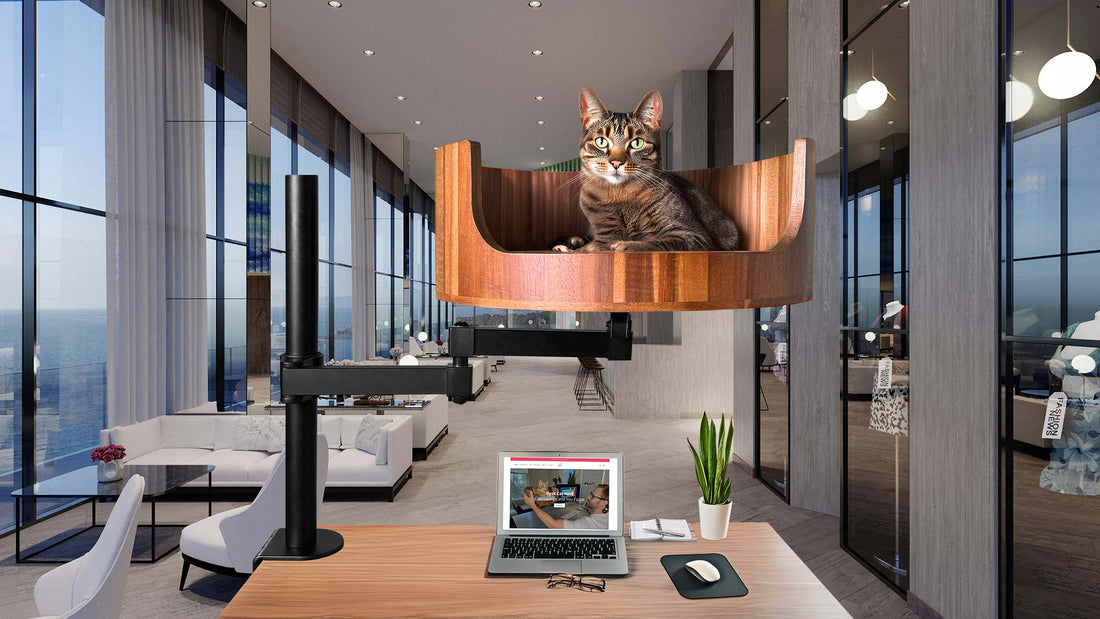
Is My Cat Depressed? Signs and Solutions to Consider
Share
Have you noticed changes in your cat’s behavior lately? Is your normally playful and affectionate feline friend seeming withdrawn or disinterested? It may be concerning to think that your beloved pet could be experiencing depression, but it’s important to recognize the signs and seek solutions to help them feel better. In this article, we will explore the common symptoms of cat depression, potential causes, and practical steps you can take to improve your kitty’s mental well-being.
Cats, like humans, can experience feelings of sadness, stress, and anxiety that can manifest in various ways. From changes in eating and sleeping habits to decreased interest in grooming and play, there are several red flags to look out for when assessing your cat’s mental health. By understanding the potential triggers for feline depression, such as changes in their environment, lack of stimulation, or underlying medical conditions, you can better address the root cause of their distress and implement strategies to support their emotional needs. Through a combination of environmental enrichment, routine care, and possibly consulting with a veterinarian or animal behaviorist, you can help your cat overcome their depression and live a happier, healthier life.
1. Changes in behavior such as decreased appetite and hiding can be signs of cat depression.
2. Factors like grief, loneliness, or environmental changes can contribute to your cat's emotional state.
3. Providing mental and physical stimulation through play, interactive toys, and a comfortable environment can help alleviate depression.
4. Regular vet check-ups are crucial to rule out any underlying medical conditions causing your cat's behavior changes.
5. Building a strong bond with your cat through affection and attention can significantly improve their mental well-being.
Signs of Depression in Cats
Depression in cats can manifest itself in various ways. Some common signs to look out for include changes in appetite, such as refusing to eat or overeating, decreased grooming habits, excessive sleeping, avoiding interaction with humans or other pets, and hiding in unusual places. Other indications of depression may include unusual aggression, increased vocalization, or a lack of interest in playing or exercise. It's important to monitor your cat's behavior and consult with a veterinarian if you notice any of these signs persisting for an extended period.
Causes of Depression in Cats
There are multiple factors that can contribute to a cat's depression. Changes in the household, such as moving to a new home, the addition of a new pet, loss of a companion (either human or animal), or a change in routine can all be triggers for feline depression. Medical issues, such as chronic pain, can also lead to emotional distress in cats. It's essential to consider any recent changes in your cat's environment or health when trying to determine the cause of their depression.
Solutions for Cat Depression
When addressing your cat's depression, it's essential to consult with a veterinarian to rule out any underlying medical conditions that may be contributing to their behavior. In some cases, medication or therapy may be recommended to help alleviate symptoms of depression. Providing a stimulating environment for your cat, with plenty of toys, scratching posts, and interactive playtime, can help improve their mood. Additionally, creating a safe and comfortable space for your cat, such as a cozy cat nest or bed in a quiet area of the house, can offer them a sense of security and relaxation. Spending quality time bonding with your cat through petting, grooming, and play can also help improve their mental well-being.
Frequently Asked Questions
How can I tell if my cat is depressed?
There are several signs that may indicate your cat is feeling depressed. These can include changes in appetite, decreased grooming habits, hiding or avoiding interaction, excessive sleeping, and unusual aggression or distress. If you notice any of these behaviors in your cat, it may be a sign that they are feeling down.
How can a Desk Cat Nest help with my cat's depression?
A Desk Cat Nest provides a cozy and safe space for your cat to relax and feel secure. Having their own special space can help reduce anxiety and stress, which are common indicators of depression in cats. Additionally, the elevated design of the nest allows your cat to observe their surroundings from a comfortable vantage point, which can help improve their mood and mental well-being.
Will my cat use the Desk Cat Nest if they are depressed?
While every cat is different, many cats find comfort and solace in having a designated space that is all their own. The cozy design of the Desk Cat Nest may appeal to your cat's need for security and privacy, making it more likely that they will retreat to the nest when they are feeling low. However, it is important to also provide other forms of enrichment and mental stimulation for your cat to help combat their depression.
In conclusion, providing your cat with a comfortable and cozy space like a Desk Cat Bed can greatly help alleviate any feelings of depression or unhappiness they may be experiencing. The elevated design allows your cat to have a sense of security and privacy, while the soft cushion provides a warm and inviting spot for them to rest and relax. By investing in a Desk Cat Bed, you not only give your cat a dedicated space to call their own, but also provide them with the comfort and support they need to improve their mental and emotional well-being. Choose a Desk Cat Bed today and see the positive difference it can make in your cat's life.



















































